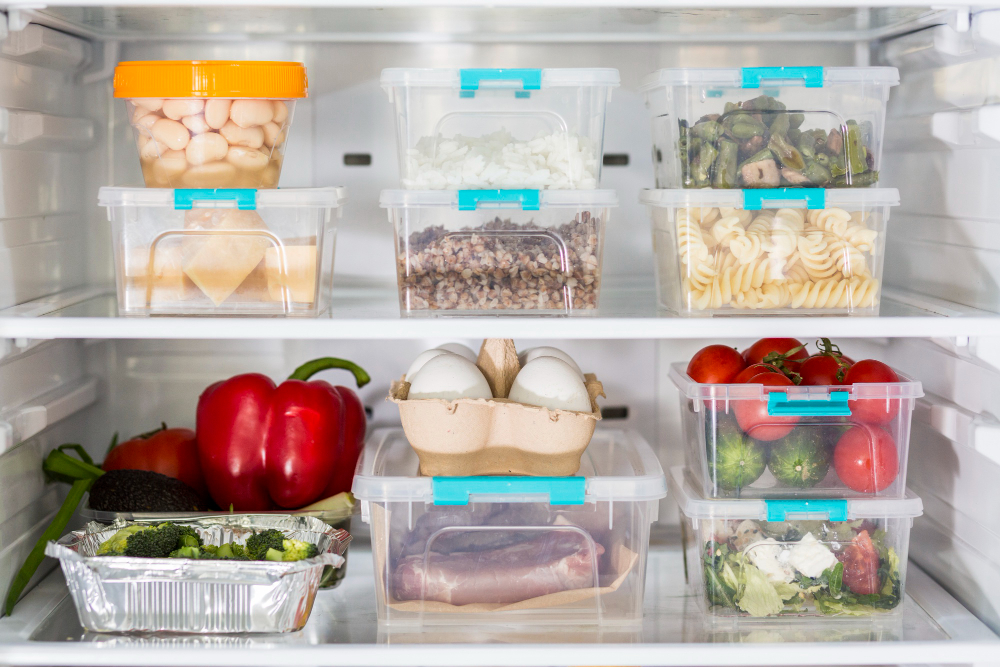Open Cans in the Fridge: A Safe or Risky Practice?
Feb 11, 2024 By Madison Evans
Have you ever opened a can of food and stored the leftovers in the fridge, thinking that you will finish it later? If so, you may be wondering if this is a safe or risky practice. After all, you don't want to waste food, but you also don't want to risk food poisoning or spoilage.
In this article, we will explore the pros and cons of storing open cans in the fridge and what you can do to keep your food fresh and safe. So, without further ado, let’s dive right into it.
Why Storing Open Cans In The Fridge Is Not a Good Practice?
Storing open cans in the fridge may seem like a convenient and easy way to preserve your food, but it is actually not a good practice. There are several reasons why storing open cans in the fridge can harm your food and health. Here are some of them:
Metal Leaching
One significant concern when storing open cans in the fridge is the potential for metal leaching. When a can is opened, the metal is exposed to air and moisture, leading to corrosion and oxidation. This can result in the transfer of metal particles into your food, especially if it is acidic, salty, or spicy.
The consequences of metal leaching go beyond affecting the taste, color, and quality of your food. It has the potential to pose health risks such as nausea, vomiting, diarrhea, and even metal poisoning. To mitigate this risk, it is advisable to transfer your food to a glass, plastic, or ceramic container before storing it in the fridge.
Promotes Bacterial Growth
Another issue associated with storing an open can in the fridge is the potential for bacterial growth. When a can is opened, the contents are exposed to bacteria, which can multiply rapidly in the cool environment of the fridge. Bacterial growth can lead to spoilage and contamination of your food, resulting in food poisoning and other illnesses.

Symptoms of food poisoning include fever, chills, stomach cramps, diarrhea, and vomiting. To prevent bacterial growth, it is essential to store food in an airtight container and consume it within three to four days.
Freezer Burn
Freezer burn is a common problem when open cans are stored in the freezer. Freezer burn occurs when food loses its moisture, flavor, and texture due to exposure to cold and dry air. This condition can make your food dry, tough, and bland while also reducing its nutritional value. To avoid freezer burn, it is recommended to wrap food tightly in plastic wrap or foil or label it with the date and contents before freezing.
Damages Fridge
Storing open cans in the fridge can also cause damage to your refrigerator and its components. Metal cans have the potential to scratch, dent, or crack the surfaces of your fridge, interfering with its airflow and temperature regulation. Rusting and staining of the fridge are additional concerns, attracting pests and rodents that can cause further damage. To protect your fridge, it is advisable to use non-metallic containers and place them on the appropriate shelves or drawers.
Pros of Storing Open Cans In The Fridge
Storing open cans in the fridge can indeed have some advantages, too, providing convenience and preserving the freshness of certain food items. While there are potential concerns, the practice may be suitable for specific situations when proper precautions are taken. Some of the advantages are listed below:
Highly Convenient
One primary advantage of storing open cans in the fridge is convenience. It allows for a quick and easy storage solution, eliminating the need to transfer leftovers or partially used contents into separate containers. This can be particularly useful when time is limited or when dealing with small quantities of food that might not warrant a dedicated storage container. The simplicity of placing an open can directly into the fridge can save time and effort in the midst of a busy schedule.
Temperature Regulation
Another benefit is temperature regulation. The refrigerator provides a controlled environment with a consistent low temperature, slowing down the growth of bacteria and preventing spoilage. This is especially advantageous for perishable items that require refrigeration to maintain their freshness. When cans are opened, refrigeration helps to extend the shelf life of contents, offering an additional buffer before they need to be consumed.
Slows Down Regulation
Additionally, refrigeration can slow down the oxidation process, preserving the flavor and quality of certain foods. Some items, such as beverages, sauces, or partially used canned goods, might benefit from being stored in the fridge as it helps maintain their taste and texture. Refrigeration can be particularly beneficial for items prone to spoilage due to exposure to air or higher temperatures.
Slows Down Bacterial Growth
Furthermore, the cold environment of the fridge inhibits the growth of bacteria, reducing the risk of foodborne illnesses. This is especially relevant for leftovers or partially used canned goods that are susceptible to bacterial contamination. While it is crucial to be mindful of storage duration and follow recommended guidelines, refrigerating open cans can contribute to food safety by providing a less hospitable environment for harmful microbes.
However, it is important to note that not all open cans are suitable for direct refrigeration. Certain factors, such as the acidity or saltiness of the contents, can accelerate metal leaching from the can into the food. To address this concern, one can consider transferring the contents into non-reactive containers, such as glass or plastic, before refrigerating. This precautionary step can help maintain the quality of the food while minimizing potential health risks associated with metal leaching.

Wrapping it Up!
Storing open cans in the fridge is a risky practice that can harm your food, health, and fridge. It can cause metal leaching, bacterial growth, and whatnot. Therefore, you should always transfer your food to a suitable container before storing it in the fridge, and follow the proper storage guidelines and safety precautions to stay healthy and fit!








